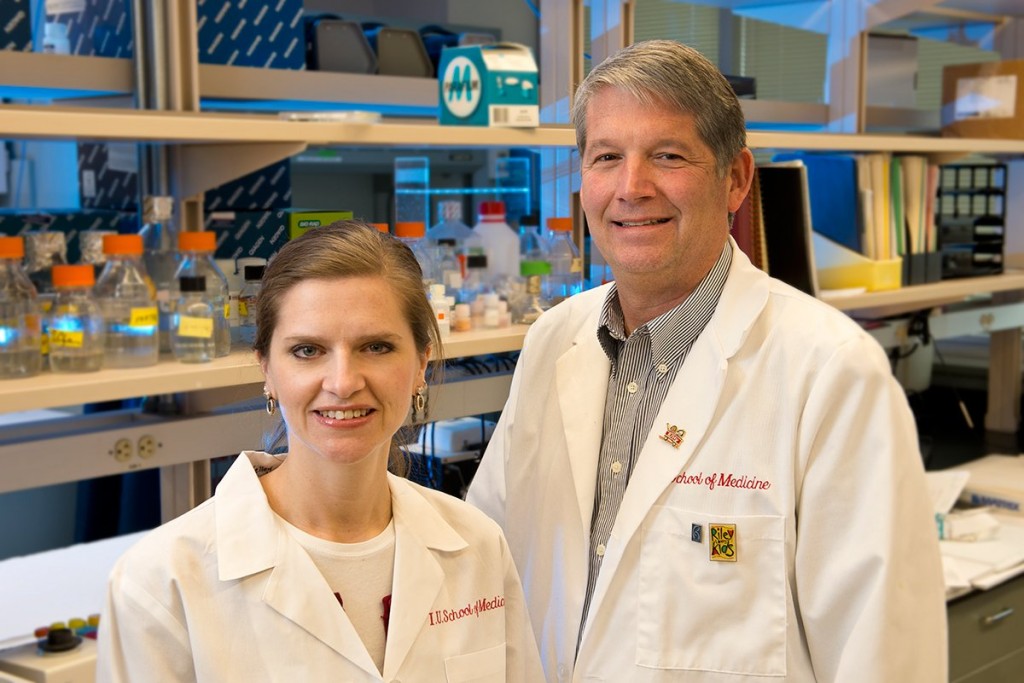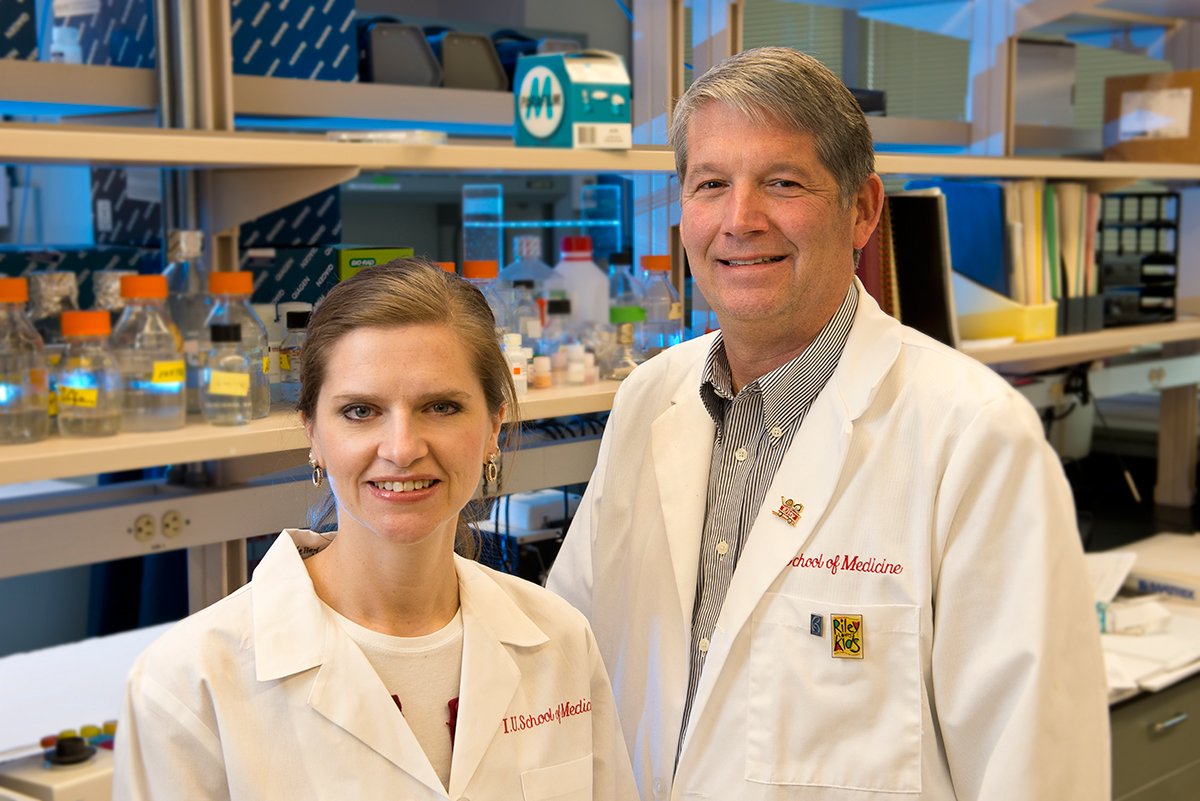
Two Indiana University researchers have been awarded a multi-year, $3.2-million grant to develop and improve therapies for pancreatic cancer, the fourth leading cause of cancer death in the United States.
Mark R. Kelley, Ph.D., and Melissa L. Fishel, Ph.D., both at the IU School of Medicine, were awarded a five-year grant from the National Cancer Institute of the National Institutes of Health. The two researchers will focus on investigating the signaling pathways and molecular mechanisms that contribute to pancreatic tumor progression and resistance to therapy.
In their laboratory research, Kelley and Fishel plan to block a protein, redox factor 1, which is crucial to regulating pancreatic tumor growth and metastasis. They will use a protein inhibitor that Kelley and colleagues developed that has shown promise in the lab in blocking Ref-1.
“We hope to better understand how this protein signals and functions in the tumor microenvironment as well as in the tumor cells. We’re hoping that if we can inhibit the function of Ref-1, we can blunt the tumor’s ability to live,” Fishel said.
Researchers have been learning that a tumor’s microenvironment plays a significant role in the life and death of a tumor.
“We’re realizing that it’s not just the tumor that has to be treated,” Kelley said. “You have to treat the tumor and the surrounding support structure, its microenvironment. Because pancreatic cancer is hard to treat, we think Ref-1 is a viable target both in the tumor and the microenvironment. If we can hit it in both places, it’s a double win.”
This latest pancreatic cancer project builds on Kelley’s ongoing research into using inhibitors to prevent cancer cells from repairing the damage caused by anti-cancer therapies. Kelley and Fishel will collaborate with other IU Simon Cancer Center researchers.
There is a need for new therapies for pancreatic cancer patients because current treatments typically only extend a person’s life for six to 10 weeks. Only 6 percent of people with the disease survive more than five years after diagnosis. According to the National Cancer Institute, there will be an estimated 45,220 new cases of pancreatic cancer and 38,460 deaths from the disease in 2013.



